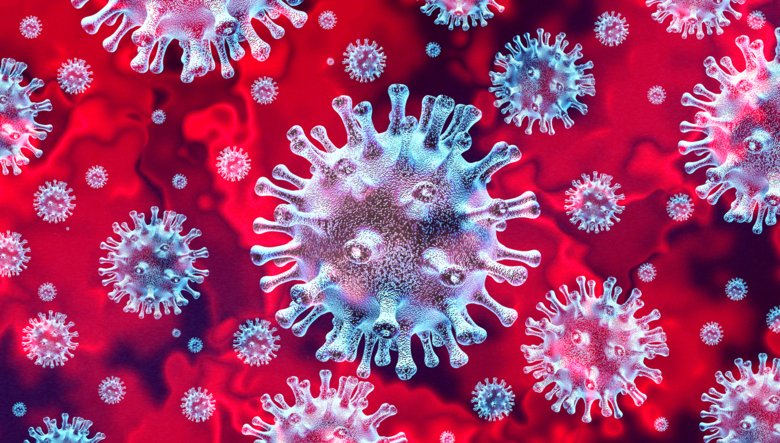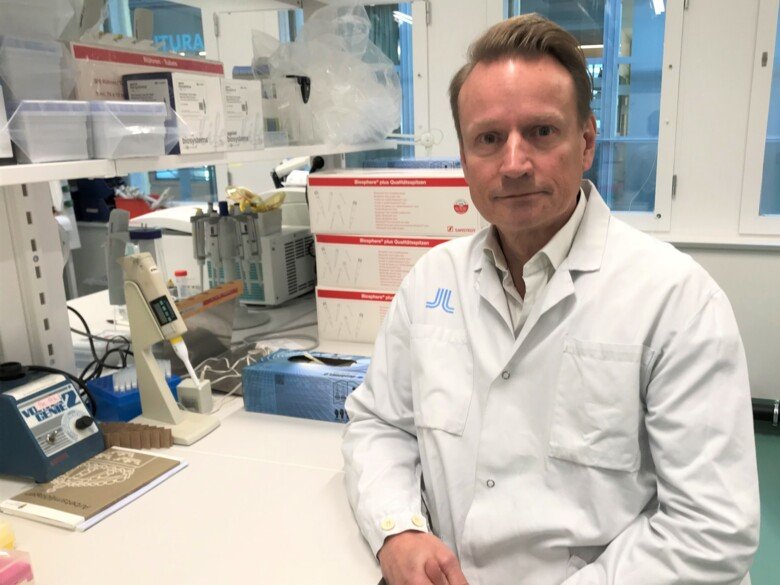Vaccine development against coronavirus enters next phase

Researchers at Karolinska Institutet are on track to produce a vaccine against the new coronavirus, SARS-CoV-2. Several vaccine candidates are currently available in the freezers at the Department of Laboratory Medicine and the first animal studies are slated to begin at the end of March, according to Professor and Head of Department Matti Sällberg who is leading the effort together with virus researcher and Professor Ali Mirazimi and researcher Gustaf Ahlén.
What is the status of the vaccine development?
We have several vaccine candidates ready in the freezers and week 13 we will begin the first trials in animals. We will start by testing two vaccine candidates in rabbits to see if they are able to trigger the immune response we are hoping for. These vaccine candidates target those parts of the virus that are genetically stable and that we therefore hope will give protection against other types of coronaviruses as well. Instead of just focusing on finding a vaccine against SARS-CoV-2, we are trying to think one step ahead and find a vaccine that could be used against different types of coronaviruses. That would mean that the next time there is a coronavirus outbreak—and it will happen again—you have an effective vaccine available and don’t need to start all over again.
What happens with the other vaccine candidates?

Within 1-2 months, we hope to start testing all vaccine candidates in parallel in mice. Then, we could hopefully see which one has the largest potential, that is which one yields the best protection against an infection. We don’t want to limit ourselves to one type of vaccine, so we are pursuing multiple tracks simultaneously until we know which one works best. Most likely we will end up with a DNA-vaccine since we know from experience that those are stable and since the infrastructure already exists to manufacture millions of doses of that type of vaccine.
Are you collaborating with other researchers, authorities and companies?
Yes, absolutely. We and six other partners just entered grant negotiations for 3 million euros from EU for this project that we are calling “OPENCORONA.” We at KI are responsible for the vaccine development while the others contribute with their expertise. For example, we are working with the company Cobra Biologics, which produces the plasmids (small DNA-molecules) that contains parts of SARS-CoV-2 and constitutes the vaccine according to Good Manufacturing Practice (GMP), and the company Adlego, which handles the toxicological studies according to Good Laboratory Practice (GLP). Part of the idea of the project is to share data openly so that other researchers can take part in and learn from what we are doing. We follow our own path but adapt to what the latest research says and what other researchers come up with.
How important is receiving this grant for you?
It’s a game changer. It means that now we can take this all the way to a phase I clinical trial in humans. Before we had the resources to produce and test vaccine candidates, but now we can take this all the way to a Phase I-study in humans. It means that once we have an effective vaccine candidate, we can produce a vaccine according to GMP which is the quality required for human trials. We can also do toxicity studies according to GLP and we can complete a Phase I-study with our partner Karolinska University Hospital. It also means that we can hire more people who can work on this and that we can establish a production line for a coronavirus vaccine so that the next time there is an outbreak we have all the pieces in place to work effectively. It makes a huge difference to have done this journey once before.
Do you also have the capacity to handle Phase II and III studies?
Then we would need more money or a collaboration with a pharmaceutical company. But I think that if we are able to produce a promising vaccine candidate in a Phase I-study, there won’t be a shortage of parties who are interested in taking this further.
